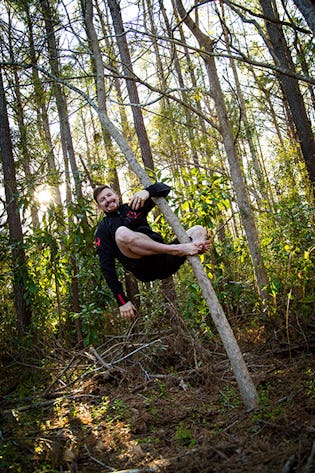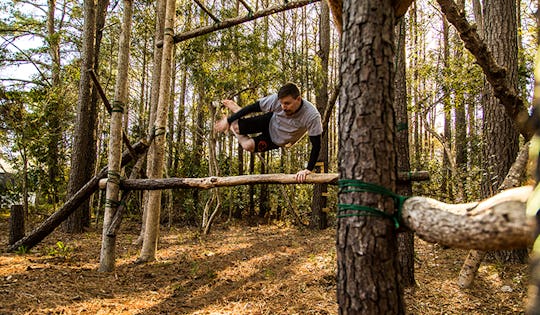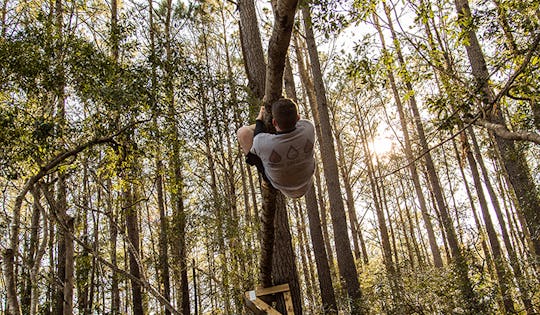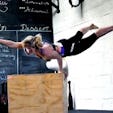I am not really that good at anything, but I am competent at many things. I achieved this by taking a universal approach to fitness training, as well as in life. This approach could be your key to lifetime, progressive training.
I know this is a rather bold opening statement for an article in which you are probably just looking for fitness training advice, wisdom, philosophy, and guidance; it is true though. Sure, I am superior to others at many skills; physically I can do many things. However, when you put my skills next to someone who is great, say a “master;” well, then I am inferior.
What I am good at is learning new things, and more importantly, I have the desire to learn new things. I have always fancied myself a bit of a modern-day Renaissance man, dabbling to a certain level of competency in multiple areas of fitness training throughout my life. I have constantly pursued numerous interests simultaneously.
Universal Fitness Training
Several years into my professional career in fitness training I adopted a similar approach. Over the last few years I have taken a very universal approach to fitness training, yet I teach my students to always be working towards mastery. This seems like a major conflict, “Do everything but get really damn good at everything too.” I am saying that, and I am not. Allow me to elaborate.
Humans can do anything. Just go on Youtube for an hour and see all the amazing things we are capable of. Guess what? That amazing freerunner you just watched, or the rhythmic gymnast, or the b-boy, or the strongman, or the circus performer, or the track star all have the same thing in common with you: they are all human.
That means that they have the same (for the sake of argument let’s keep it in terms of practical anatomy) muscles, bones, nervous system, digestive system, etc. They are not doing anything you couldn’t be doing with your fitness training, but these people are highly specialized, and without a doubt have achieved mastery of their craft.
Master Your Fitness Training
 Here is where taking a universal approach to your fitness training is more fun. Watching Brian Shaw win the World’s Strongest Man is awesome (I actually saw him do it live in 2011). Watching Sally Pearson run hurdles is simply perfection. Watching Brian Shaw run hurdles would be entertaining, but far from poetry in motion. I am equally positive that there is not one single object in WSM that Miss Sally could budge.
Here is where taking a universal approach to your fitness training is more fun. Watching Brian Shaw win the World’s Strongest Man is awesome (I actually saw him do it live in 2011). Watching Sally Pearson run hurdles is simply perfection. Watching Brian Shaw run hurdles would be entertaining, but far from poetry in motion. I am equally positive that there is not one single object in WSM that Miss Sally could budge.
Now using a universal approach, I can do several strongman lifts, decent for my size; I can dance enough to have fun and not look like a total fool; I can do some basic parkour and rudimentary gymnastics; I can take part in several track and field events; and I can twirl a ribbon, but not while putting my left big toe on my right earlobe. The point that I am trying to make is, taking a universal approach gives you the opportunity to do whatever, whenever.
This is what I want for myself and my students fitness training so that life becomes more fun. To me, fun is the ultimate goal of fitness training. Mastery, makes the fun more fun. I tend to define mastery as being able to do a skill with very high competence and control, the same way every time you perform it. I am not talking about one to three quality reps, I am talking about thousands of quality repetitions.
Achieving mastery through endless hours of focused practice on a single skill or two perhaps. The endless hours and tireless pursuit of excellence yields mastery of said skill or technique. While this approach makes someone incredibly brilliant at a few things, it does not fit in with a universal approach. In order to integrate these two concepts and find synergy, I like to focus on a few things at a time while doing many other things.
Teaching Fitness Training
 For example, every time one of my students begins a fitness training session, they must perform Kettlebell Swings while I critique, Turkish Get Ups under my strict guidance, and work on their Handstands among other skills. I want to see mastery in the warm up which I deem as important as the rest of practice for the day.
For example, every time one of my students begins a fitness training session, they must perform Kettlebell Swings while I critique, Turkish Get Ups under my strict guidance, and work on their Handstands among other skills. I want to see mastery in the warm up which I deem as important as the rest of practice for the day.
Another method we use to accomplish some level of mastery is to have certain skills dominate our practices for a few months. Two locomotives my students worked on heavily for the last 8-10 months are the Lizard and Orangutan (that’s what I call them but they have other names). By seeing these movements in their fitness training over and over my students have gotten pretty good at them. The most recent skill we added was Vaulting, only three variations for now.
My jiu-jitsu coach, Joe Hurst, used to say, “the best way to teach a man nothing is to teach him everything.” We only focused on one or two moves per practice but tried many things; by rolling this way we could work towards mastery of those skills, slowly but steadily.
This is exactly how we do fitness training at Asylum Fitness. We work on many things through play and exploration. We try to keep it fun and curious the way a child moves and learns. Yet at the same time, we will slowly work towards mastery, one skill at a time. If I am given a lifetime to master a variety things and work at them gradually, then at the end of my life I will master several of them.
Fitness Training Quick Tips
Pick a few skills at a time. Work at them constantly as a focus of your practice for an extended period.
- Don’t forget to always try new things (sidenote: use what works for you).
- After a while rotate in a few new skills.
- Keep a high level of integration on the ones you just worked on.
- Repeat this process for a lifetime.


)





